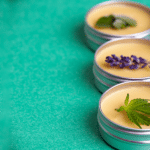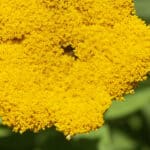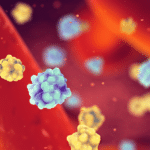Cannabis can benefit physical and mental health in myriad ways by tapping into our body’s highly connected, balance-seeking endocannabinoid system. It can also cause harm. But in some cases, researchers find no effect at all, also known as a null result. This can be due to a true lack of effect, or simply to the particulars of the study’s design – and discerning between the two is a key function of science as an iterative, evolving practice.
Three recent papers serve as enlightening examples: one evaluating the effect of smoked cannabis on post-traumatic stress disorder (PTSD) symptom severity; one reviewing the link between cannabis-derived cannabinol (CBN) and sleep quality; and one testing CBD as a treatment for arthritis pain. None of these papers report evidence of positive or negative outcomes. But they still play a part in the larger scientific process by building upon previous research and informing subsequent inquiries.
Cannabis & PTSD
Rick Doblin of MAPS fame serves as senior author of a paper published in PLOS One1 earlier this year describing the first randomized, placebo-controlled trial of smoked cannabis for post-traumatic stress disorder. Better known for his work with MDMA, or ecstasy, the Multidisciplinary Association for Psychedelic Studies founder and executive director here investigates the potential of three different types of smoked cannabis (THC-dominant, CBD-dominant, and balanced THC/CBD) to treat PTSD – and finds none better than an inactive placebo. But that still doesn’t mean cannabis won’t help; it just means that among the 80 study participants, all active cannabis users, expectations about cannabis’ effects were statistically as powerful as any additional benefit derived from actual exposure to THC and CBD during the study. Moreover, “Given the topical nature of the current trial and its relevance for public policy on medical cannabis, participants might have been biased to report positive effects regardless of condition,” the authors write. “Additional well-controlled and adequately powered studies with cannabis suitable for FDA drug development are needed to determine whether smoked cannabis improves symptoms of PTSD.” After publication of the PLOS One paper, MAPS received $13 million from the state of Michigan for a “Phase 2” cannabis/PTSD clinical trial involving 320 military veterans.
CBN & Sleep
Search the internet for “CBN” or “cannabinol” and most of the results (other than those referencing the Christian Broadcasting Network) will mention sleep. One of the better known “minor” cannabinoids, CBN is the oxidized form of THC, created as cannabis ages. It’s also widely marketed as a sleep aid that promotes sedation. However, this assertion is not supported by the scientific literature, a point made explicit in an August 2021 review in Cannabis and Cannabinoid Research2; of eight higher-quality studies published between 1945 and 2021. “There is insufficient published evidence to support sleep-related claims,” writes Jamie Corroon of San Diego’s Center for Medical Cannabis Education. “Randomized controlled trials are needed to substantiate claims made by manufacturers of cannabis products containing CBN. Individuals seeking cannabis-derived sleep aids should be skeptical of manufacturers’ claims of sleep-promoting effects.” While this finding doesn’t definitively prove that CBN is useless as a sleep aid, it likely points to one of two possibilities: either any claim that CBN is associated with better sleep is totally bogus, or any benefit is actually a byproduct of other characteristics of aged or high-CBN cannabis, such as high THC content or different terpene profiles.
CBD & Arthritis
Current evidence indicates that CBD is most powerful as an analgesic when combined with THC. But because of the greater availability and different legal status of CBD-only products, researchers continue to investigate the potential of cannabidiol on its own to treat pain associated with a variety of ailments. A team based in Denmark recently published a paper in the journal Pain3; describing a study of 136 arthritis patients – randomized, double-blind, and placebo-controlled – intended to determine the extent to which a daily regimen of 20 to 30 milligrams of CBD for 12 weeks would reduce pain relative to a placebo. Short answer: it didn’t. The authors report that 22% of patients receiving CBD and 21% of those receiving placebo experienced a reduction in pain intensity of more than 30mm on the Visual Analogue Scale. Not only that, but they also found no statistically significant effects on other outcomes including sleep quality, depression, and anxiety. As always, this isn’t the final word, but the study may well influence the design of future investigations into the use of CBD for treating arthritis symptoms. For example, it could be the case that 20-30 mgs of CBD isolate is simply too low a dose to confer an analgesic effect, whereas a higher dose would be effective.
Nate Seltenrich, Project CBD contributing writer, is the author of the column Bridging the Gap. An independent science journalist based in the San Francisco Bay Area, he covers a wide range of subjects, including environmental health, neuroscience, and pharmacology. © Copyright, Project CBD. May not be reprinted without permission.
Footnotes
- https://journals.plos.org/plosone/article?id=10.1371/journal.pone.0246990
- https://www.liebertpub.com/doi/10.1089/can.2021.0006
- https://journals.lww.com/pain/Abstract/9000/Cannabidiol_treatment_in_han…
Recommended Readings
Mind Over Matter Over Mind
What role do endocannabinoids play in the placebo effect?
Cannabis Roots
From traditional medicine to modern science
2019 Project CBD Survey Results
Project CBD releases the results of one of the most extensive CBD user surveys to date.










